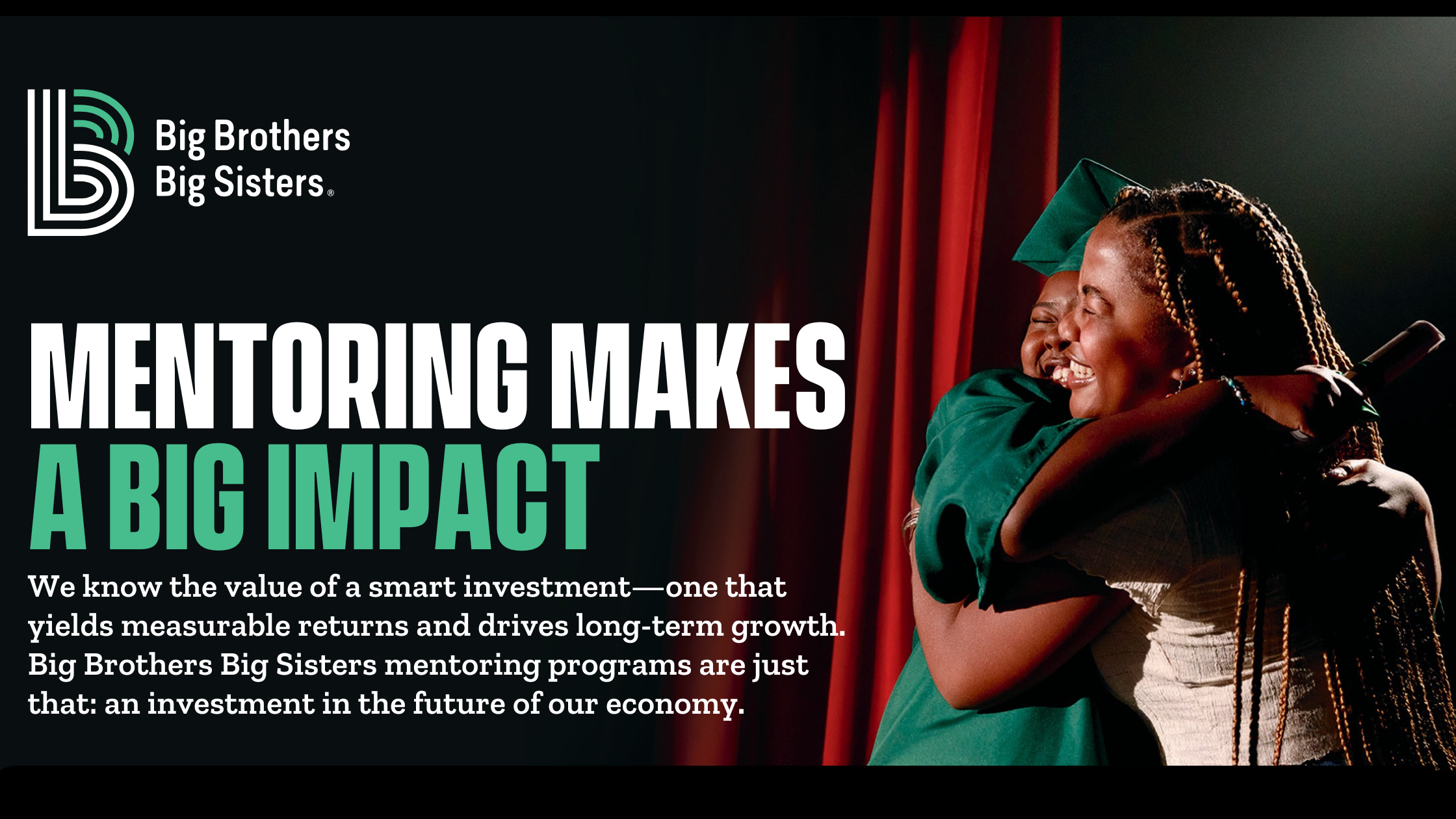
New Research
Big Brothers Big Sisters of America (BBBSA) –released a groundbreaking study on the transformative power of mentorship in shaping young people’s educational, economic, and social trajectories. Conducted by leading researchers from Harvard University and the U.S. Department of Treasury, this first-of-its-kind study reveals how mentorship programs like Big Brothers Big Sisters can serve as a scalable solution to reduce socioeconomic disparities over time.
This research, rooted in three decades of data, provides compelling evidence that mentorship delivers
long-lasting benefits:
Increased Earnings: Participants experienced a 15% boost in earnings between the ages of
20 and 25, reflecting enhanced economic mobility. The income of mentored youth as adults was more closely aligned with the income of their mentor than their family, helping to reduce the socioeconomic gap by two-thirds.
Higher College Attendance: Mentored youth are 20% more likely to attend college
compared to non-mentored peers.
Improved Behavior: Within 18 months, mentored youth reported lower absenteeism and
fewer school suspensions.
Healthier Social Outcomes: Mentored youth exhibit improved behaviors and stronger
social bonds, leading to a reduced dependency on social services and long-term societal
improvements.
While previous studies suggest youth must fully change their social environment to increase economic
opportunity, this study is the first to identify community mentorship as a low-cost solution that offers
the same results. With BBBS programming costs at approximately $2,000 to $3,000 per year per youth,
the increased lifetime earnings of mentored youth and related tax revenue would allow the
government to recoup costs within just seven years, making it one of the most cost-effective youth
interventions.
The research builds upon a landmark 1991 randomized control trial (RCT) conducted by Public/Private
Ventures and Mathematica Policy Research, extending the analysis into the 2020s by linking
administrative data from BBBS to U.S. tax records. This robust approach provides unprecedented
insight into the lifelong impacts of mentorship on education, employment, and social identity.
The study focuses on matched youth between the ages of 10 and 14 who applied to a BBBS community
based mentoring program in the early 1990s. Participants came from diverse backgrounds, with 60%
being male and more than half identifying as racial minorities. Most participants lived in single-parent
households or with guardians.
To learn more, visit www.bbbs.org.
*Information from BBBSA Networking Toolkit
